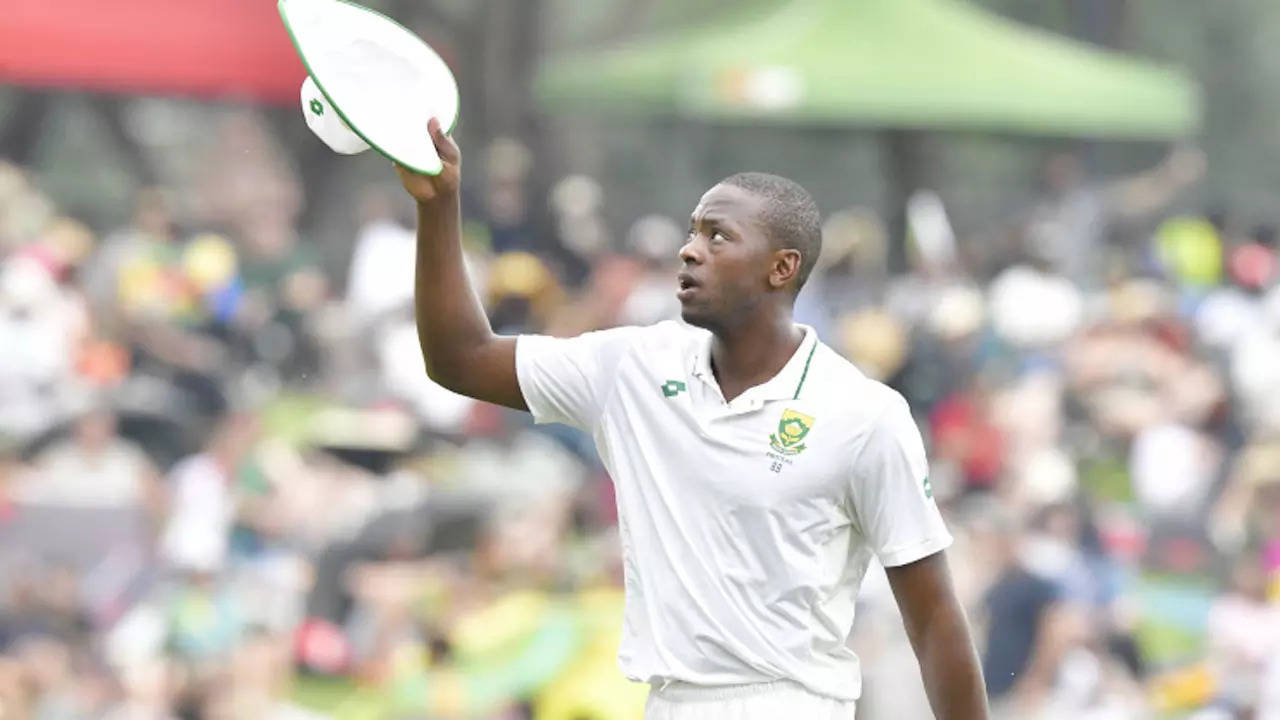[ad_1]
The series, which formed part of the World Test Championship, saw the inclusion of seven uncapped players, while key players were preoccupied with the SA20 league back home. Neil Brand, thrust into captaincy, made his Test debut during the series opener in Mount Maunganui, where the hosts secured a predictable 2-0 victory.
Reflecting on the contentious affair, Rabada voiced his hope that such regrettable incidents would not recur, emphasising the need for greater player involvement in scheduling decisions to avoid similar unsavory episodes in the future.
“It was very very unacceptable and remains unacceptable to date. It was obviously a planning issue. It is unacceptable that is all I would say about that,” Rabada, one of the leading fast bowlers in the game, told PTI in an interview.
Rabada, currently showcasing his skills for Punjab Kings in the IPL, has extended his unwavering support to the uncapped South African players who found themselves thrust into an awkward situation through no fault of their own.
Despite the circumstances beyond their control, Rabada stands firmly behind these players, acknowledging the challenges they faced and commending their resilience amidst the unexpected circumstances.
“If I can go back on that point it is not fair to go at the players. It is not fair to say that players are being picked and they got free Test caps. I don’t think it is fair to put that criticism on the players. They simply got asked to go there, and at the end of the day they are not going to say no.
“That is a planning issue and it has got to do with what is happening at the higher level; what happened with Cricket South Africa. It was basically a double book, that was what it was.”
The absence of star South African players undoubtedly dealt a blow to the momentum of the burgeoning SA20 league, highlighting the inherent challenges of balancing domestic commitments with international obligations.
Unfortunately, Test cricket bore the brunt of this dilemma, emerging as an unintended casualty in the process. The prioritisation of T20 leagues over traditional formats underscored the complex dynamics at play within modern cricket, where commercial interests and player participation intersect with the traditional framework of the game.
“End of the day, we didn’t really get a choice to even go there (New Zealand) because of the importance of the SA20. It is like shooting yourself in the foot,” said the 28-year-old who considers Test cricket as the number one format of the game.
“Cricket comes from Test cricket and Test from my perspective is the best format. I would imagine all great players who play all formats would say Test cricket is their favourite format. It is the same for me as well.”
‘Ensure Tests thrive outside Big 3’
As of now, India, England, and Australia are renowned for their consistent involvement in red-ball cricket, playing the highest number of Test matches within a World Test Championship (WTC) cycle. Their schedules often include engaging in prestigious five-match Test series against each other, showcasing the pinnacle of cricketing competition.
“When it comes to countries excluding India, England and Australia, it is quite unfortunate. The way that I see it, to become a powerful cricket nation without the advantage of currency and advantage of TV rights, it is about playing good cricket.
“The better you play, the more teams want to play with you. It is very hard to argue against why those nations would want to play with each other because at the end of the day, it is about sustaining the business of cricket which is to make revenue and that is how the game stays alive.
“How do you incorporate other nations playing the same amount of Test cricket…I am not sure. If you are looking at prolonging Test cricket, if you want kids to keep playing Test cricket globally, then a plan has to be made.”
Rabada commended the recent initiative by the BCCI to incentivise Test players, recognizing it as a positive step towards elevating the stature of the traditional format of the game. However, he emphasized that there is still much ground to cover in terms of providing adequate support and recognition for Test cricket.
“You pay cricketers (well) but it is a culture as well. It is not just about the money because the money these days the cricketers are blessed with. They can make enough money through the leagues.
“It is great what the BCCI is doing to incentivise Test players. But it is also a culture as all cricket comes from Test cricket,” added the South African who has taken 291 wickets in just 62 Tests.
(With PTI inputs)
[ad_2]
Source link

